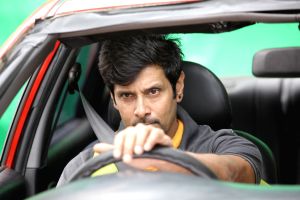What do I tell about the film? A film that changed the course of the way I started watching films. The story about how Scorsese wanted to become priest and Paul Schrader coming with Raging Bull script and making him change the course of his life is well known. That’s what this film did to me when I was in third year of college.
It was the week I was about to get the result of 4th semester. I had joined the gym for the first time and the first unit test was fast approaching. You know about middle class parents. They were thinking that I’m wasting all my time in gym and watching movies. For them I’ve to study daily. When I even say this to my classmates, they’ll be like, “what? they ask you to study daily?” I don’t have an answer. I had got used to it by then. So… it was the week I was about to get results. On two consecutive days I watched Taxi Driver and Raging Bull. I didn’t talk about the movies to anyone. For me Taxi Driver and Raging Bull are not two different films. It’s a dual feature. They became so personal that I didn’t even feel like talking to anybody. The feeling that those two films gave me was phenomenal. Later that week I got my results with two arrears and I had to stop the gym for obvious reasons. But what this film did was, it made me not get angry on my parents for asking me to stop gym and worrying about arrears. The distant way in which I approached studies and life after that was something I thought I would never be able to do. That’s what movies or any art form is supposed to make you do right. To make you a better person! Taxi Driver did that to me. And without any effort. Not that I became very good in studies and got all matured in life. Not only did I have arrears after then and I also started thinking from the other persons point of view too when they scold me. Even if I had arrears after that it wouldn’t have really mattered.
You see how the movie opens. Close up of De Niro’s eyes. That seductive angels of taxis. Only after watching the movie one would come to know that taxis could be so seductive. And De Niro, man. How awesome that dude looks. I’m not sure whether an insomniac would look this good, without dark circles, tired face etc. But he nails it here. He’s part psychotic too. But in a good way. There is always a fan fight betwen Al Pacino and De Niro but I couldn’t even compare them. I go for De Niro hands down. Just watch these two movies. Raging Bull and Taxi Driver, you ought to become a De Niro fan.
Nothing De Niro does has a reason. You couldn’t make a better movie out of a loner. He wants a life that would be fruitful. When someone reads his diary he wants them to think that his life was phenomenal. So he does everything cinematic. He woos a beautiful looking girl, by walking right into the office. He helps a girl out of prostitution who doesn’t really look as if she’s troubled. He tries to kill a senator. In the climax he walks out like a superhero thinking, “with great life comes great responsibility.” He couldn’t have been a better loser.
Obviously no one is going to understand what I’m saying as well as what Travis Bickle was going through in the movie. The fact that what was wrote by Paul Schrader was exactly understood by Martin Scorsese and exactly enacted by Rober De Niro is why the film is culturally, historically and aesthetically significant. The same thing Scorsese tries with DiCaprio too but it doesn’t work like how I’m not feeling like typing Martin Scorsese and Leonardo Dicaprio for Scorsese and Dicaprio respectively. You understand? You better don’t!



